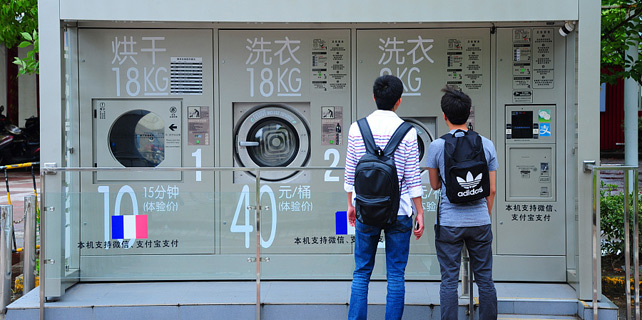Moody's downgrade flawed, market reaction muted
BEIJING - Moody's decision to downgrade China's credit ratings failed to take into account the distinctiveness of the Chinese economy, and is thus deeply flawed, economists said.
In a statement released Wednesday, the rating agency said it had downgraded China's long-term local currency and foreign currency issuer ratings to A1 from Aa3, and changed the outlook to stable from negative.
Credit analysis by rating agencies is known to be biased toward historical data. For an economy in transition, such as China, using a universal and one-dimensional evaluation standard can be biased and lacks credible reasoning, analysts said.
China is distinct from its Western counterparts. Domestically financed debt, a higher-than-average savings ratio, and stronger-than-usual fiscal strength separate the economy from others and offer the country sufficient room to ward off financial risks.
For any economy to develop its domestic industries, debt financing is not evil per se, and China is no exception.
By the end of September 2016, China's leverage ratio stood at 255.6 percent, lower than 255.7 percent in the United States, Britain's 283.1 percent and Japan's 372.5 percent, the National Development and Reform Commission said on Wednesday, citing data from the Bank for International Settlements.
"While such debt levels are not uncommon in highly-rated countries, they tend to be seen in countries that have much higher per capita incomes, deeper financial markets and stronger institutions than China's," Moody's said in its rationale for the ratings cut.
The reasoning, however, overlooked the fact that the debt on China's balance sheet is mostly domestically financed, reducing the chance of a global liquidity squeeze caused by deteriorating foreign debt solvency.
By the end of 2016, China's foreign debt totalled 1.4 trillion yuan ($203.8 billion), accounting for only 5.4 percent of the total debt and 13 percent of GDP, significantly lower than major economies all over the world, Bank of Communications said in a research note.
"In stark contrast to Western economies, virtually all Chinese debt is domestically financed and provided by local banks," said Luc Froehlich, Head of Investment Directing at the Asian Fixed Income division of Fidelity International, an investment firm.
Adding to investor confidence on China's solvency is the country's higher-than-average savings ratio, and its large amount of foreign exchange reserves, both of which offer leeway for the economy to rebalance itself.
According to data compiled by the World Bank, the gross savings rate in China stood at 47.9 percent in 2015, almost double the world average of around 25 percent. The country's foreign exchange reserves surpassed $3 trillion, the most in the world.
"The most common precursor of a debt crisis is a liquidity crisis," said Froehlich. "A high savings ratio combined with a tendency to leave cash in banks means that liquidity is readily available."
Doomsayers also failed to take into account China's fiscal strength, which keeps rising despite the recent economic slowdown. For the first four months, fiscal revenue jumped 11.8 percent, compared to 8.6 percent for the same period last year.
Besides taxes, local governments in China also have land-transferring fees as an alternative source of revenue, an advantage not found in other economies and that helps local authorities meet their debt obligations, said the Bank of Communications in the note.
As China continues to push for reforms on the equity structure of state-owned enterprises and state-owned banks, at least 1.5 trillion yuan of available fiscal capital will be freed up annually, the bank said.
"Through the downgrade decision based on inappropriate methodology, we have seen that Western rating agencies often look at China through a 'telescope,'" said a commentary published in a newspaper managed by China's central bank.
Market reaction to the downgrade has proved to be limited. Bond prices barely moved, as most of the fixed income products were bought by state-owned banks and held to maturity, said Daniel Christen, an analyst with Capital Economics, a research agency.
Stock prices dropped initially on the news but quickly bounced back as investor sentiment calmed. The benchmark Shanghai Composite Index even registered a winning streak on Thursday despite the downgrade.
"There's no need for us to pay too much attention about it," the commentary said. "Instead, we should focus on ourselves and continue to ward off financial risks to support the sustainable growth of the Chinese economy."



















